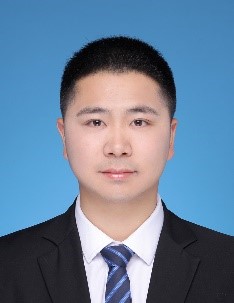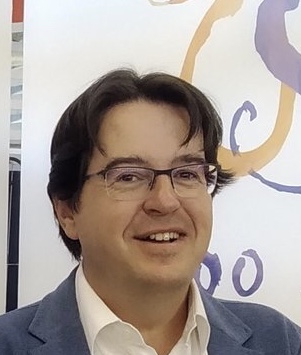Esteban Sánchez Hernández, Full Professor, University of Salamanca
In parallel, sustained scientific activity has been undertaken in instrumentation and data processing at the Terahertz Laboratory of the University of Salamanca, with participation in nationally and internationally funded projects. Publications cover a broad scope, ranging from chaotic dynamics and the synchronisation of non-linear circuits to applied studies on photovoltaic self-consumption, electricity tariffs, and performance under non-optimal operating conditions. Recent works have appeared in Heliyon, Sustainability, Applied Sciences, and Sustainable Energy Technologies and Assessments. He also serves as a reviewer for leading journals in energy, electronics, and nonlinear dynamics, such as Applied Energy, Journal of Cleaner Production, MDPI Electronics, IEEE Transactions on Circuits and Systems I: Fundamental Theory and Applications. The professional profile combines experimental development, industrial collaboration, and applied research in renewable energy.
Abstract: In recent years, photovoltaic self-consumption systems have undergone remarkable growth in the building sector. However, this expansion has also brought technical challenges, most notably the occurrence of fire incidents associated with rooftop installations, which can lead to severe consequences. The resulting impact includes not only safety concerns but also increased insurance costs and operational constraints.
This presentation focuses on the technical aspects of these incidents, examining the main causes linked to system design, component reliability, and installation practices. Particular attention will be given to rooftop applications, where the risks are heightened. Furthermore, the session will review the role of emerging technologies—such as module-level power electronics (optimisers and microinverters)—in mitigating these risks and improving overall system safety.

Aitor Cristiam Raposeiras Ramos, Associate Professor, University of Salamanca
He has participated in over 30 competitive R&D projects at national and international levels, often in collaboration with industry. He is a co-author of more than 80 scientific contributions, including journal articles, conference papers, and book chapters. He has also supervised numerous undergraduate and postgraduate theses in Civil and Mechanical Engineering.
Dr. Raposeiras has received several awards throughout his career, most notably the 2025 Rethink the Game Award, granted by Fundación Real Madrid and BMW Ibérica, and the 2025 Innovation Award of Castilla y León for the province of Zamora. He has been actively involved in technology transfer and knowledge dissemination, participating in multidisciplinary projects that have been recognised for their innovation in sustainable infrastructure. His work bridges academic research and practical engineering applications, with a strong commitment to transitioning towards a circular economy and environmentally friendly road construction.
Abstract: The road sector is currently facing unprecedented challenges in the context of climate change, resource scarcity, and the urgent demand for sustainable development. Civil engineering plays a central role in addressing these challenges by integrating innovative approaches into the design, construction, and maintenance of road infrastructure. This keynote lecture will present the latest advances in sustainable road engineering, with particular emphasis on the valorisation of industrial and marine wastes, circular economy strategies, and the rheological and mechanical assessment of innovative asphalt mixtures.
Drawing on international research experience in Spain and Chile, as well as on projects such as RheoNet, which was awarded the Rethink the Game Award 2025 by Fundación Real Madrid and BMW Ibérica, the lecture will highlight case studies that connect academic research with practical engineering applications. Special attention will be given to the use of alternative raw materials, innovative laboratory characterisation methods, and digital tools that ensure resilient, cost-effective, and environmentally friendly pavements.This keynote aims to provide a comprehensive perspective on how civil engineering can transform sustainability principles into tangible solutions for road infrastructure, paving the way towards greener, more intelligent, and more circular transportation systems.

Danqing Song is the Deputy Director of the Office of Development Strategy and Planning at the South China University of Technology (SCUT), China. He is also a professor at the School of Civil Engineering and Transportation (SCUT), Secretary General of the ICGdR Division, and a young editorial board member of 10 journals. His main research areas include the dynamic effects of rock mass structures, rock mass dynamic catastrophic damage, geological disaster monitoring and early warning, prevention and control, and intelligent construction of underground engineering. He has published 116 SCI papers. He has received 12 provincial and ministerial-level important science and technology awards. He has presided over 15 national and provincial research projects.
Abstract: The construction of tunnels in China is generally confronted with the problem of poor geological conditions caused by water-rich faults, which severely restricts the high-quality development of regional transportation infrastructure. The western part of China has frequent tectonic activities and complex geological conditions, which make the evaluation and prevention of surrounding rock failure in the tunnel extremely difficult. This research involves multiple disciplines such as rock mechanics, seepage mechanics, engineering geology, and artificial intelligence. With the support of national projects, research methods including microscopic experiments, laboratory experiments, model experiments, numerical simulations, in-situ tests, and theoretical analysis are adopted. Focusing on the coupling factors of seepage and dynamic loads in the tunnel surrounding rock crossing water-rich faults, and addressing key technical bottlenecks in tunnel construction and operation such as unclear instability mechanisms of the rock, insufficient timeliness of monitoring and early warning, and low level of technical refinement in prevention and control, this project conducts research on the key technologies and applications for hydraulic-dynamic coupling disaster evaluation and safety control of tunnels crossing water-rich fault. The research results are of great significance for ensuring the safety and operation of tunnel construction in China.

Manoj Khandelwal, Associate Professor, Federation University Australia
Abstract: Blasting operations in mining and civil engineering projects often generate ground vibrations that may affect nearby structures and communities. Accurate evaluation and prediction of blast-induced ground vibration are essential for ensuring safety, regulatory compliance, and sustainable blasting practices. This study investigates key influencing parameters such as charge weight, distance, and geological conditions to evaluate vibration characteristics. Predictive models are developed and validated against field data to estimate peak particle velocity (PPV) and vibration attenuation trends. The insights gained provide a framework for optimising blast design, minimising environmental impacts, and improving vibration control strategies in blasting operations.

